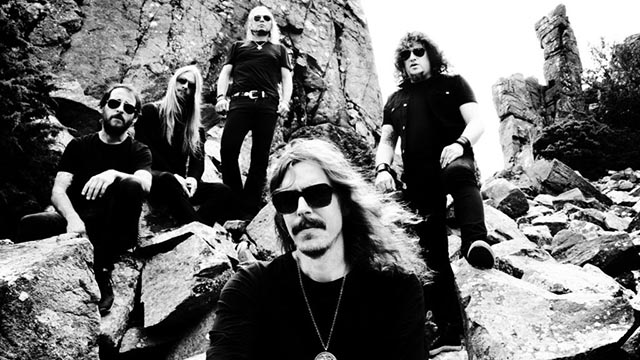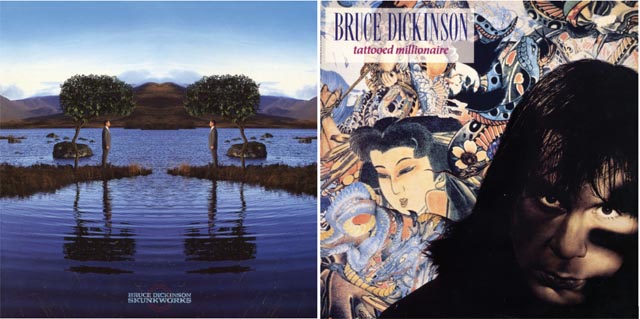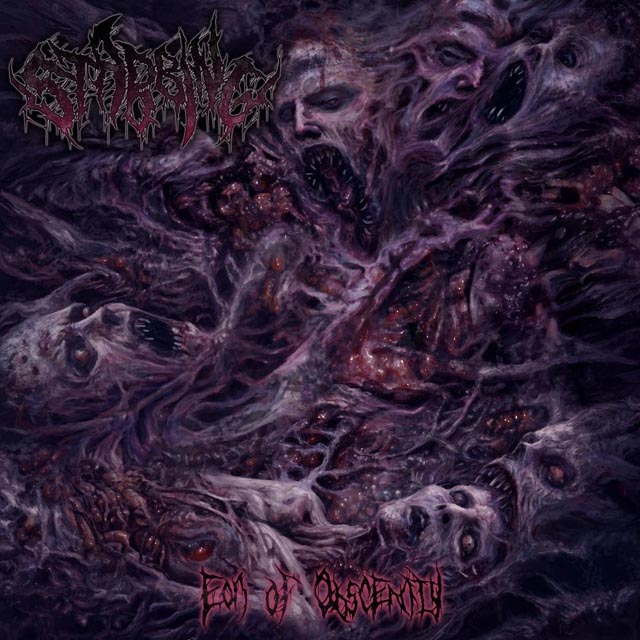
Sorceress is the twelfth studio album to come from Swedish progressive rock/metal group Opeth. It will be released worldwide tomorrow, September 30th via Nuclear Blast Records subsidiary Moderbolaget. Rolling Stone is streaming it now. Now here is where I say some really controversial stuff. I, being of unsound mind and dangerous empty bank account, do confess that I have never listened to an Opeth album in its entirety before this one. Having completely skipped over the “golden years” that many of the metal elitists cry about, I thought this would be a good time to see what the band had to offer without having to worry about feeling like one of “those people.” You know the ones I’m talking about.
Production
Sorceress was produced by Tom Dalgety, and recorded at Rockfield Studios in Wales. The album, for the most part, was recorded, mixed, and mastered very well. The songs all sound full, warm, and like the polished assembly of unique and individual parts that it is.
My one complaint in this area involves the song “Era.” As a whole, it’s a pretty solid song, but at the very beginning it contains a light piano intro that goes on for about a minute, but is far too faint to hear if not already listening at high levels. It’s not so bad when you know to expect it, but when you’re driving in your car wondering when the next song is supposed to start, you have a problem. The same can be said for the outro “Persephone (Slight Return).” If the volume isn’t high enough, you just might find yourself back at the beginning before you realized the album even ended.
Songwriting
While I don’t exactly have a discography to compare it to, Sorceress feels like a blend between Jethro Tull and The Sword. It’s equal parts somber acoustic, progressive folk, and sludgy rock & roll.
The technical aspect of the songs is unquestionable. The highlight songs for me include”Sorceress,” the heavily Jethro Tull inspired “Will O The Wisp,” the and instrumental “Seventh Sojourn,” which has found itself a place in my D&D adventuring playlist. There really is no way to objectively account for tastes, but most of the other songs were unfortunately pretty forgettable.
Flow
It terms of how the record plays as a whole, Sorceress seems to lack direction. Many of the transitions between songs, and even mid song, are dramatic and harsh. While that may sound exciting, it’s more like walking blindly into a wall of sound, or unexpectedly walking off a cliff while you wonder “where did all the music go?” Prepare to adjust the volume as you’re listening.
Using “Era” again as an example, it starts off with the quiet piano intro, quickly builds up into what might be the most upbeat song on the album, and then abruptly transitions back to the piano from the beginning, just as quiet as the first time. This wouldn’t be much of a problem, but that song follows up “Fleeting Glance,” which ends on a high and heavy note, and then seems to disappear abruptly into the aether, as you wonder “where did all the music go?” When listening to the album as individual songs, and not as a whole, the transition from “Era” to “Persephone (Slight Return),” is even worse, with “Era” ending mid word and “Persephone (Slight Return)” beginning with “Era’s” final note.
Packaging
The artwork for the album is beautiful and fitting for the the music contained. It features an elegant peacock, with it’s feathers spread wide, perched atop a pile of corpses, meat, and general human innards. At first glance it might appear that the peacock serves as an analogy to the sorceress mentioned in the song, beautiful to look at but very deadly. Then you remember that male peacocks are the pretty ones with the fantastic feathers, and that goes out the window, because it would then be called “Sorcerer.” It could alternately be a metaphor for the dark themes hiding underneath what might initially sound like happy and pleasant music. Or, maybe it’s just a cool piece of art. That’s the best part about art, it can take on a different meaning unique to each individual.
Overall
On the first listen, the only track that even remotely stuck with me was the title track “Sorceress.” Upon further listening, the only track that really stuck with me was the title track “Sorceress.” The album may have it’s shining moments, such as the title track, “Era,” and “The Seventh Sojourn,” but ultimately Sorceress fell pretty short of all expectations for me. I tried to give it time to grow; I listened to it all the way through, non-stop, several times throughout the past few days, and I went through it two final times, this time listening to it as individual song while writing this. Unfortunately even upon the fifth and sixth spin through the album it still felt unremarkable and ultimately forgettable.
You can check the lyric videos for the title track and “Will O The Wisp,” two of my favorites from the album below. Opeth’s Sorceress receives three Steven Wilsons out of five.












